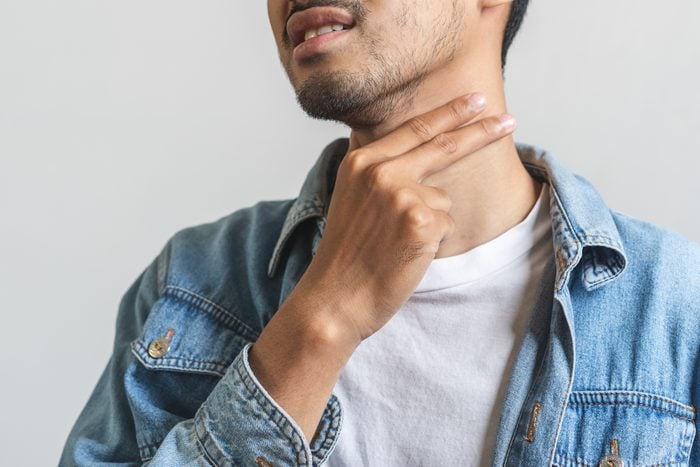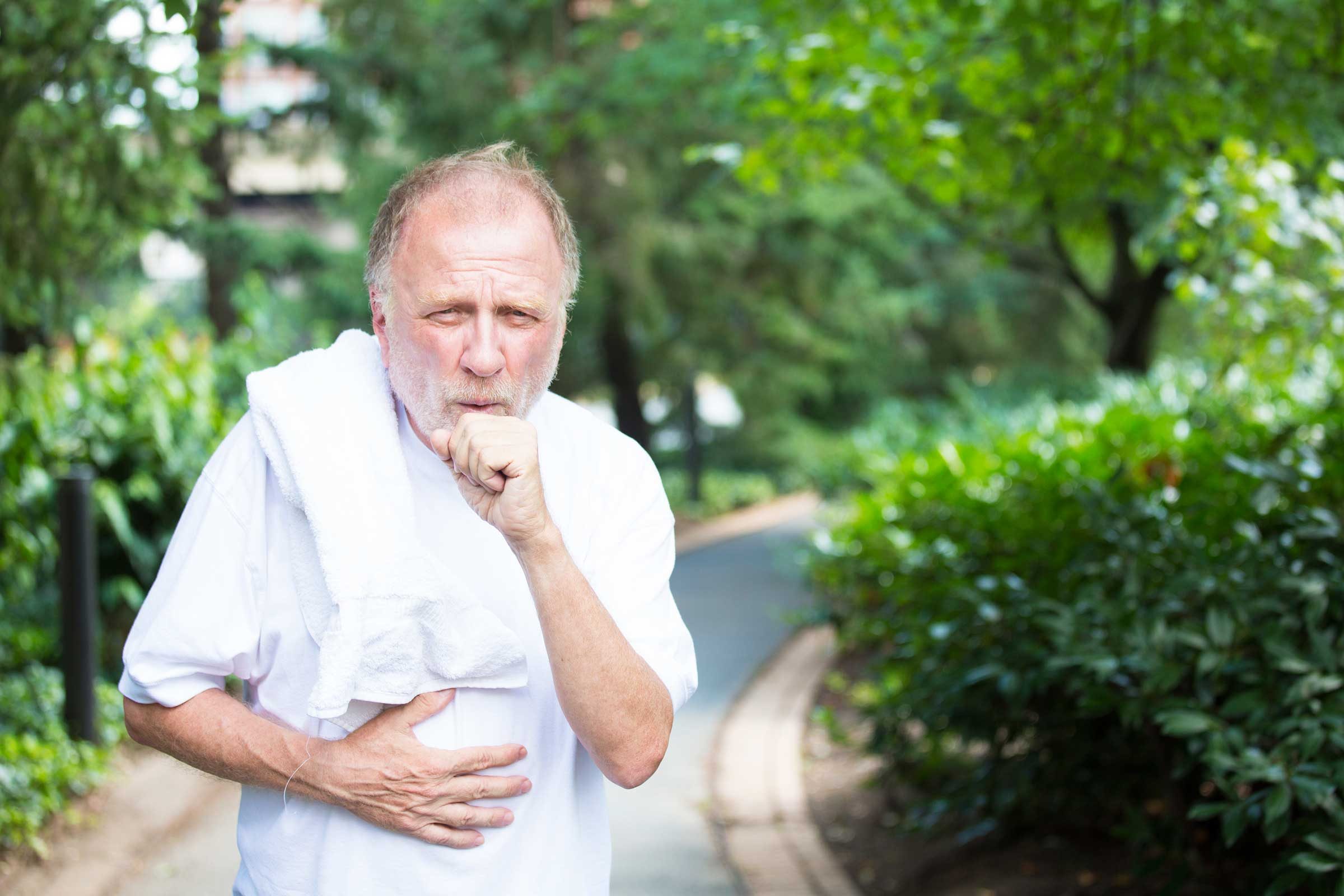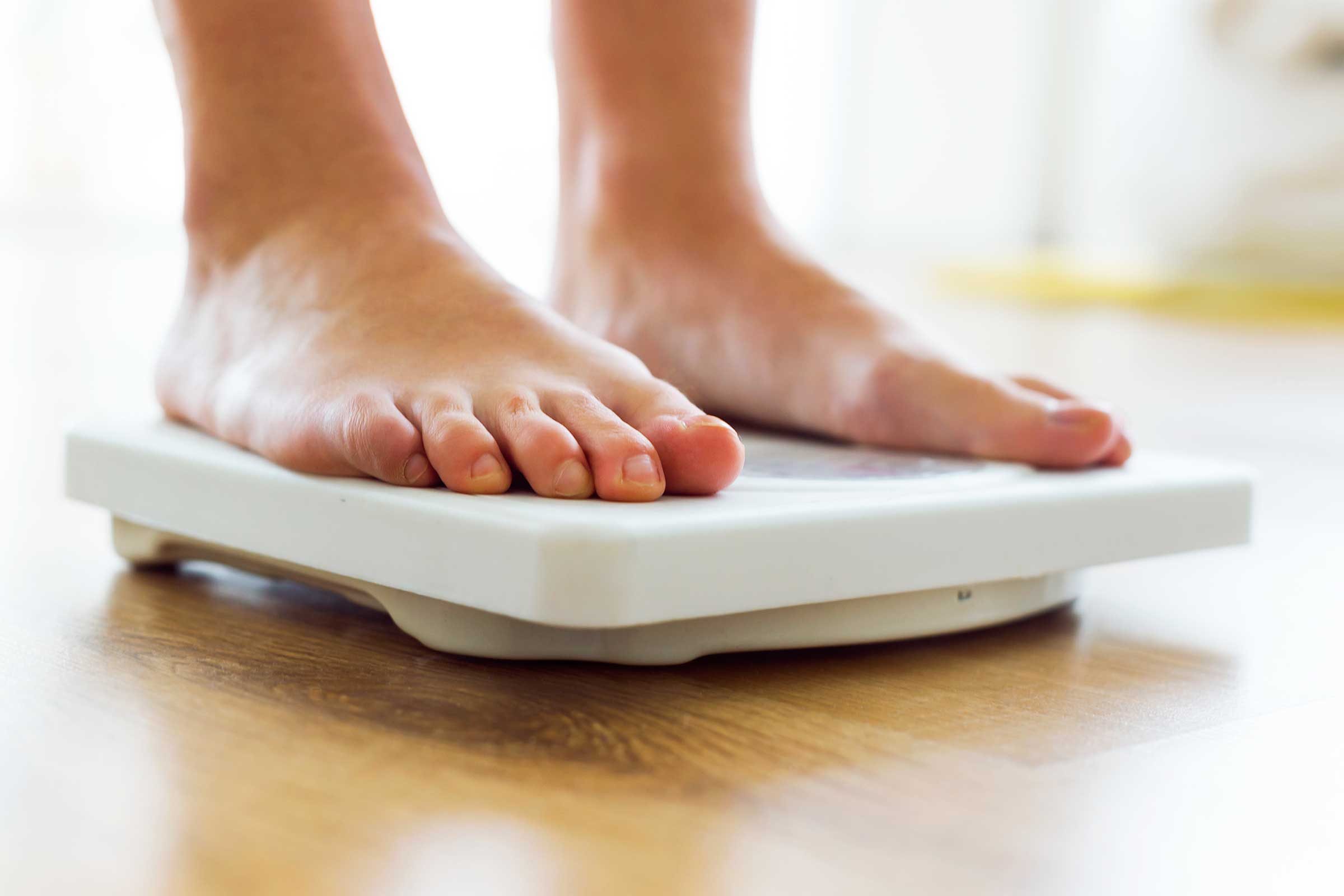
What is esophageal cancer?
Your esophagus is the muscular tube connecting your throat to your stomach, and it allows the food and drink you eat to make its way down through your digestive tract. So it makes sense that many of the symptoms and signs of esophageal cancer have to do with pain related to eating and drinking, among others. Esophageal cancer is relatively rare (compared to other types of cancer), but it’s important to know the symptoms. According to the American Cancer Society, around 17,000 Americans will be diagnosed with esophageal cancer this year, and 15,690 will die from it. Here’s what you need to know.

Esophageal cancer symptom: You have pain or difficulty swallowing
Pain or difficulties with swallowing are the main signs of a tumor in the esophagus, that muscular tube that connects the mouth and stomach, according to Avni Desai, MD, a medical oncologist at the Memorial Sloan Kettering Cancer Center outpatient facility in Commack, New York. Desai says people begin to notice pain when swallowing solid foods and eventually feel pain when swallowing liquids. The first hint of dysphagia, or difficulty swallowing, typically happens when people can’t swallow a piece of meat or bread. “That’s a result of the tumor growing,” says Ronan Kelly, MD, director of the Gastroesophageal Cancer Therapeutics Program at John Hopkins. “If the tumor gets to a certain size it can narrow the opening to the esophageal tube, and can cause that sensation of blockage.” If difficulty swallowing persists or gets worse, see a gastroenterologist, who may perform an endoscopy. An endoscopy is an exam in which a thin, flexible, lighted scope is used to examine the esophagus. (Do you know all of these surprising causes of cancer?)

Esophageal cancer symptom: Your acid reflux is getting worse
Many people get reflux or heartburn occasionally, when stomach acid comes up from the stomach, causing inflammation. But having reflux after most meals isn’t normal, and feeling a burning sensation behind the breastbone can be the result of stomach acid leaking into the esophagus. “We actually see cancer more commonly in the lower part of the esophagus, right next to the stomach,” Dr. Desai says. If you notice the reflux symptoms getting worse or happening more frequently, it might be time to consult a physician. In the meantime, consider taking a break from foods that make heartburn worse.

Esophageal cancer symptom: You’re coughing after heavy meals
Gastroesophageal reflux disease (GERD), can cause the lungs to become sensitive. “Very often, after people have a meal, stomach acid comes back up and can slightly irritate the airways,” Dr. Kelly says. “People can tend to have coughing after heavy meals or big meals.” Some people can develop asthma as well. The vast majority of people with GERD do not have esophageal cancer, Dr. Kelly notes. However, if you have severe GERD and do not respond to the treatment your doctor prescribed, talk to your primary care physician about whether you should have an endoscopy. The test can identify any suspicious nodules, which would then be biopsied. It can also pick up on Barrett’s esophagus, a precancerous condition that can lead to esophageal cancer. Barrett’s esophagus can develop in people who have had GERD for a long time, and is due to the chronic damage and inflammation caused by acid reflux over time. (Most people with Barrett’s esophagus will not develop cancer, however.)

Esophageal cancer symptom: You’re unintentionally losing weight
If certain foods are hard to swallow, you might stop eating them, which could bring on weight loss. So could switching over to more liquids, or just not eating as much because you don’t feel well. “Cancer can cause people to lose their appetite,” Dr. Desai says. “But even if they’re eating well and they have an okay appetite, the cancer causes patients to lose weight.” If you’re losing weight without trying, it could be a sign you need to be evaluated. (Don’t miss the 13 signs of cancer that men tend to ignore.)

Esophageal cancer symptom: You’re more fatigued than usual
A crazy-busy 24/7 lifestyle, nearly any medical condition, and everything from allergies to migraines, can leave you exhausted, along with these other medical reasons you’re tired all the time. But if you’re feeling more fatigued than normal and you notice other symptoms of esophageal cancer, it might be time to schedule an appointment with your physician. It’s worth noting that esophageal cancer affects more men than women, and people between 45 and 70 are most at risk. If it turns out you do have esophageal cancer, it’s operable if found during stages 1, 2, and 3, with or without radiation and chemotherapy first to shrink the tumor, per the American Cancer Society.